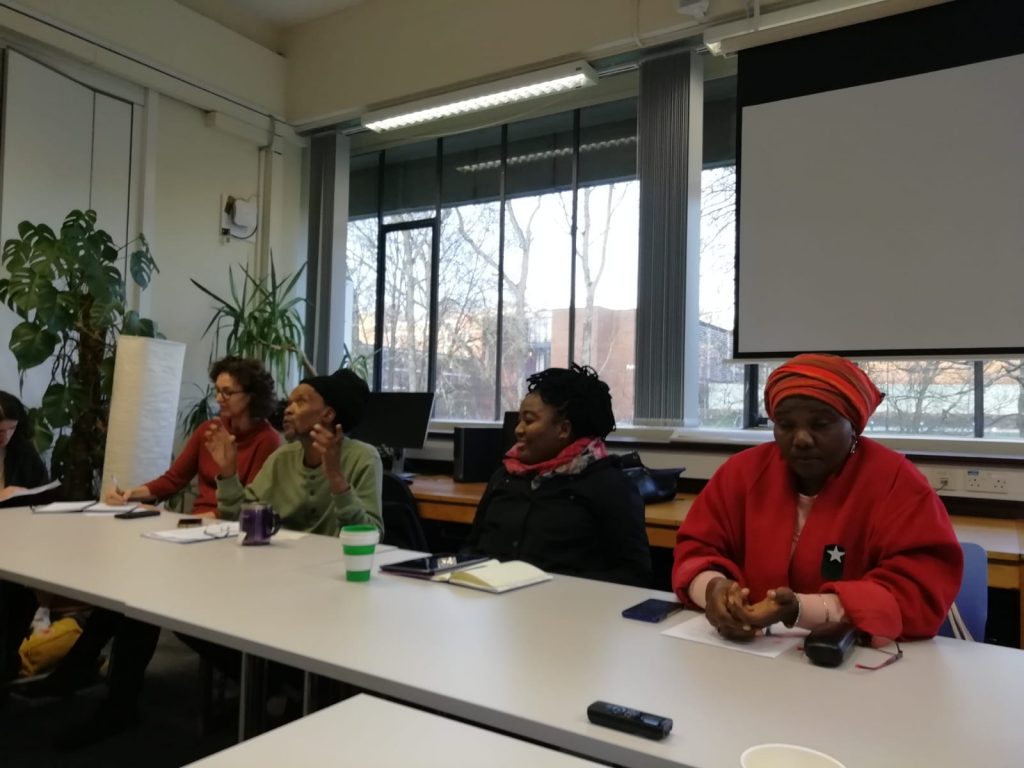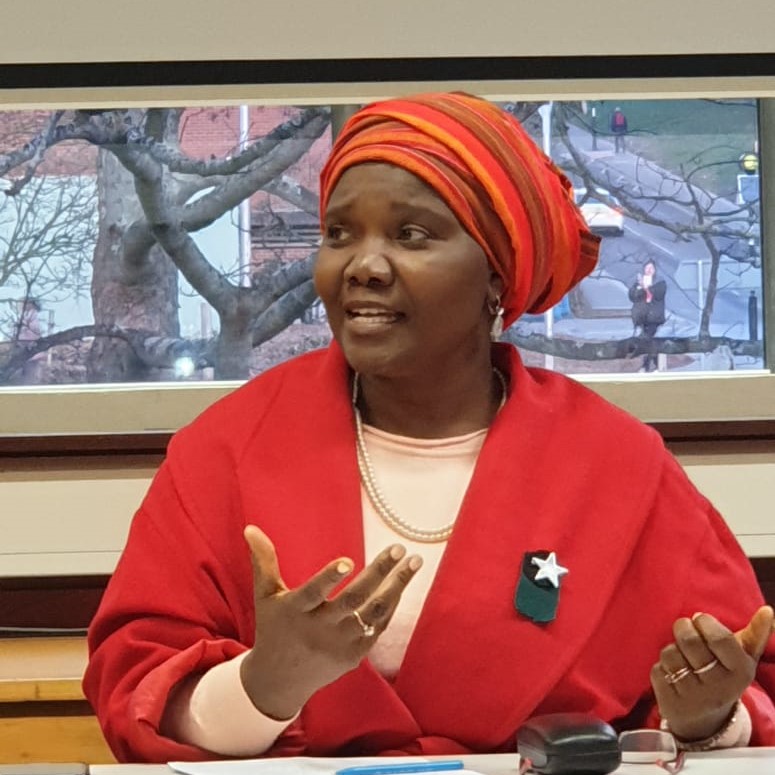
One of the greatest pleasures in working on this project, and a cornerstone in the project’s methodology, is working with colleagues from Africa. We were delighted when our partners from Namibia and Botswana, who were visiting us for the project launch, agreed to contribute to a Sussex Africa Centre Seminar. The topic was ‘Heritage in Southern Africa: debating decolonizing agendas’.
Dr Napandulwe Shiweda (University of Namibia) began the session offering her reflections on monuments and heritage in Namibia, drawing our attention to some exciting projects taking place. She spoke of Namibia as a young country where, in the past, ethnic differences had been exploited. Heritage is therefore seen in the context of a wider nation building project and cultural policy has been developed around the concept of ‘Unity in Diversity.’ One of the projects Napandulwe highlighted is Africa Accessioned which seeks to make a list of all relevant collections from Zambia, Zimbabwe, Botswana and Namibia held in Germany, Finland, Sweden and the UK. This work is not only important in highlighting objects for repatriation but also encourages dialogue and an understanding of both the context the objects were made in and the context they were collected in that can be used to enrich our understanding of the artefacts.

Winani Thebele (National Museums of Botswana) also addressed the context in which objects were collected. She spoke about how much material had been removed from Botswana to Europe and South Africa but emphasised that this was part of a wider global process. Winani criticised UNESCO and ICOM for adopting a narrative of ‘shared heritage’ as a way of taking the heat out of the repatriation debate and questioned whether African objects held in storage in UK museums really constitute a ‘shared heritage’. In addition, she raised the issue of the effect the lack of historical artefacts had had in Botswana and its impact on the development of their national museum.
Finally, Scobie Lekhutile (Khama III Memorial Museum) spoke about how the Khama III memorial museum had developed in Serowe, Botswana. The museum was founded in the 1980s by volunteers who felt there were a lack of historical resources in the local area and nowhere to store recorded information. He spoke about the important work the museum had done collecting material culture and recording its use at a time of rapid change in Botswana. However, he also emphasised how the museum had been affected by changes in international development priorities; at one stage benefitting from a move towards cultural rather than infrastructural projects, then losing out as funding was redirected towards other countries in the region. He ended on an upbeat note by saying that a small museum had enormous potential as a result of the commitment of its volunteers and its history of activism.
Issues of provenance, context, unequal relationships, potential repatriation and sharing are themes we will be addressing throughout the project, The seminar was extremely popular, standing room only. Staff and students from Sussex and a smattering of Museum Studies students from Brighton University were all very keen to hear speakers from Africa and Prof. JoAnn McGregor (chair) struggled to bring the discussion to a close. This topic is obviously of great interest and there is a thirst for voices from outside UK to be heard on these issues.
Dr Nicola Stylianou, University of Sussex